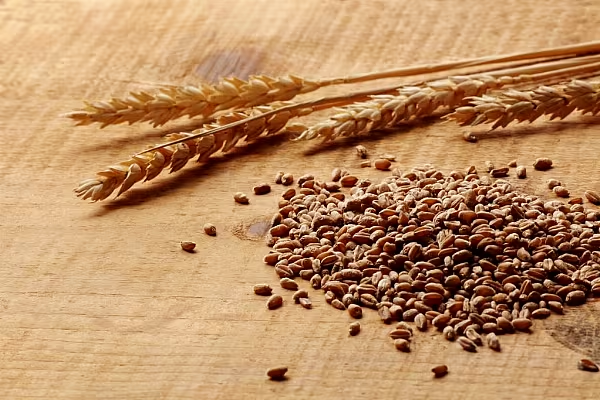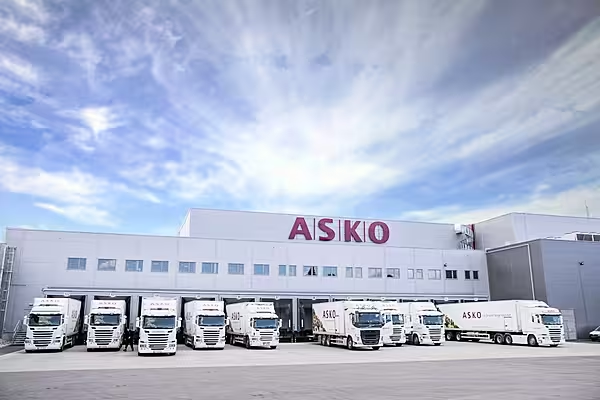There’s so little money in buying and selling wheat, corn and soybeans these days that some traders are turning to obscure markets in desert-grown tomatoes and chickpeas to turn a profit.
Margins for handling the big grain crops have sunk, as farmers grew more than the world needs for four years. That’s led firms like Germany’s BayWa AG to seek out niches such as tomatoes and organic grains, where returns are higher. Others turned to costlier processed food ingredients or gluten-free products.
"The general trading environment for agricultural commodities is rather difficult," said Jean-Francois Lambert, the founder and managing partner of consultant Lambert Commodities. "It has been the case for two years, and it looks like this year may be as challenging."
That bodes ill for traders who grew fat in the boom years in the last decade, when prices rose on demand from a world population growing in size and wealth.
While the biggest firms trading huge grain-market volumes may see limited effect on their bottom lines from niche markets, small and mid-sized traders can benefit more. They’ve jumped into lesser-known products like quinoa or organic crops, with better margins and demand from health-conscious shoppers.
Grain Services Srl, a brokerage based in Reggio Emilia, Italy, gets about 30% of its revenue from gluten-free, organic or niche products, including quinoa, rice, amaranth and lentils, even though these make up just 7% of the 1.5 million metric tonnes of crops that the firm handles, managing director Andrea Cagnolati said.
Gluten-Free
Demand from consumers is making gluten-free and organic foods some of the world’s fastest-growing areas in the industry, according to a presentation by Cagnolati at the recent Black Sea Grain conference in Kiev. The gluten-free industry is expanding by about 10% a year, with annual sales reaching $7 billion worldwide by 2020.
"The quantity is low, but we get very good margins," Cagnolati said in an interview at the conference. "The margins in traditional grain markets are very low, or, in the case of the US, even negative."
BayWa, the German agribusiness that bolstered grain operations only to post a loss at its trading unit last year, is turning to organic and greenhouse produce. The firm has entered a venture to grow and trade premium tomatoes in the United Arab Emirates.
France’s Groupe Soufflet, the biggest private buyer of grain in Europe, is expanding in pulses and investing in the production of ready-to-eat lentils.
Even industry giants such as Glencore Plc and Bunge Ltd have entered or expanded less-traded areas in the past two years. Bunge, which has been trading for 200 years, bought a Turkish olive-oil company, and Glencore is handling the product from its Madrid office.
These are small operations for such large firms – not a side dish so much as a condiment to their main grain operations. Volumes of global imports of pulses, including beans, lentils and chickpeas, came to less than 6% of total wheat imports in 2013, according to the latest available data from the United Nations’ Food & Agriculture Organization.
"Niche markets are still too small to be interesting [for such players]," Erik Rietkerk, chief executive officer of Amsterdam Commodities NV, a trader of products such as nuts and spices, said in an interview in Lausanne, Switzerland. "Those are not liquid markets."
A better strategy for the top firms may be expanding into costlier processed commodities to sell to customers further down the supply chain. Bunge is finalising plans to build a soy-processing plant in the US, to allow it to offer more soy meal or soybean oil. Cargill, Inc. has expanded its animal-nutrition business and bought Archer-Daniels-Midland Co.’s chocolate business.
France’s top grains cooperative, Axereal, is also betting on growing demand for beer to turn its barley-malting plant in Antwerp into the world’s largest.
Others are sticking with grain in locations where they see growth. ED&F Man Holdings Ltd is expanding grain trading in the Black Sea region and China, Glencore has its sights on the US, and Bunge is pushing into Canada. Some, such as Chinese food giant Cofco Corp., have simply reined in their ambitions. That comes as the price of both wheat and corn has risen this year, after dropping the past four years.
Even BayWa’s tomato project, with plans for 15 hectares (37 acres) of greenhouses in the desert, seeks to tap into strong demand in the Middle East.
"Large corporations will increase their engagement in emerging markets, where there is still room to generate margins or exploit competitive advantage," said Miroslaw Marciniak, a consultant at Warsaw-based InfoGrain and a former grain trader. "The scale is important, so they will continue to trade in bulk."
News by Bloomberg, edited by ESM. Click subscribe to sign up to ESM: The European Supermarket Magazine.














